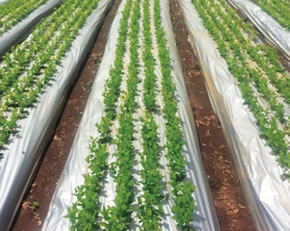What would you attribute your success to considering you indicated the inaugural show exceeded expectations?
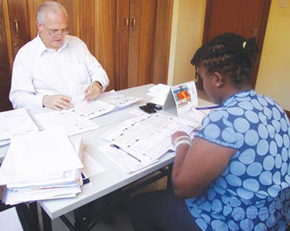 The fact that Kenya is one of the countries in the world where the production area of flowers structurally increases is a strong indicator that the sector -overall- is in a good shape. Moreover, growth in a worldwide economical turmoil shows that the sector has to row against the stream and still moves forward. This cannot mean anything different than strength for even more growth when coming into calm waters. Therefore IFTEX is an excellent instrument for the Kenyan floriculture Industry to support and accelerate this growth.
The fact that Kenya is one of the countries in the world where the production area of flowers structurally increases is a strong indicator that the sector -overall- is in a good shape. Moreover, growth in a worldwide economical turmoil shows that the sector has to row against the stream and still moves forward. This cannot mean anything different than strength for even more growth when coming into calm waters. Therefore IFTEX is an excellent instrument for the Kenyan floriculture Industry to support and accelerate this growth.
What has been your most ‘unexpected’ occurrence at the show?
I was 100% confident that this trade fair could not fail and would be a “full house”. The only big unknown factor was how to convince the Kenyan growers that this would work if they just would believe in it. Never before in my career of organising flower trade expos anywhere else in the world, I had so many excellent building parts in my hand to create the almost ‘perfect’ flower trade exhibition, I am even tempted to call it. Being a flower trade expo specialist, I got very excited the moment I added it all up and suddenly visualized the ideal place for an African flower trade expo could, would and should be Kenya and Kenya only. I then decided to hold as many meetings with the growers as needed until they would be convinced to give it a try and take a booth. It was somehow still unexpected though when I finally I managed to get enough on board. The rest as they say is history. Growers from the region have also joined the show.

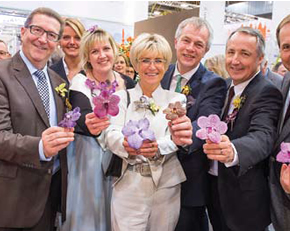 An outstanding mood at the 34th International Plant Fair IPM ESSEN 2016. The world’s leading fair for horticulture was once more able to prove that it is the most important platform for the international green sector. From January 26 to 29, 2016, 1,588 exhibitors from 49 nations presented their innovations and new products along the value added chain in horticulture to first-rate trade visitors from all continents at Messe Essen. The comprehensive range on offer included new plant creations, pioneering technology, strong-selling floristry trends and marketing concepts oriented to target groups. The Innovation Showcase which set a record with 76 plant novelties was representative of the enormous innovative force of the sector.
An outstanding mood at the 34th International Plant Fair IPM ESSEN 2016. The world’s leading fair for horticulture was once more able to prove that it is the most important platform for the international green sector. From January 26 to 29, 2016, 1,588 exhibitors from 49 nations presented their innovations and new products along the value added chain in horticulture to first-rate trade visitors from all continents at Messe Essen. The comprehensive range on offer included new plant creations, pioneering technology, strong-selling floristry trends and marketing concepts oriented to target groups. The Innovation Showcase which set a record with 76 plant novelties was representative of the enormous innovative force of the sector. “Temperature is the single most important factor that affects flower value. Therefore, keeping flowers in low temperatures from the farm to the final destination is vital. Among the key areas of consideration is the transport from the farm to the airport. A well known and an increasingly more used tool to achieve this is the use of insulated refrigerated bodies.
“Temperature is the single most important factor that affects flower value. Therefore, keeping flowers in low temperatures from the farm to the final destination is vital. Among the key areas of consideration is the transport from the farm to the airport. A well known and an increasingly more used tool to achieve this is the use of insulated refrigerated bodies.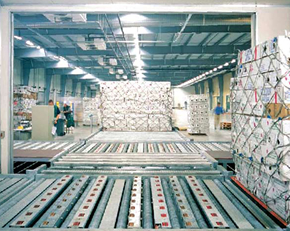 Floriculture is an agricultural sector of worldwide importance and of paramount social and economical influence. Roses account to a large percentage of all flowers grown. After flowers are harvested, temperature is the one factor affecting them the most. This is the time to evaluate different cooling methods used in the postharvest of roses, by measuring their effects over floral longevity and other quality variables. The residual effects of passive, forced air and vacuum cooling methods were evaluated, after transport simulation. The test was performed at a flower-exporting farm. It was found that those flowers exposed to vacuum cooling showed the longest longevity while those that took forced air had the lowest.
Floriculture is an agricultural sector of worldwide importance and of paramount social and economical influence. Roses account to a large percentage of all flowers grown. After flowers are harvested, temperature is the one factor affecting them the most. This is the time to evaluate different cooling methods used in the postharvest of roses, by measuring their effects over floral longevity and other quality variables. The residual effects of passive, forced air and vacuum cooling methods were evaluated, after transport simulation. The test was performed at a flower-exporting farm. It was found that those flowers exposed to vacuum cooling showed the longest longevity while those that took forced air had the lowest.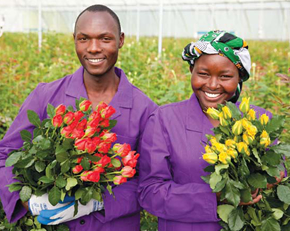 Dutch Flower Group Africa is all about linking Retail and Wholesale consumer markets, all over the Globe,with flower growers in Africa.Being the supply chain partner for overseas DFG companies, the Nairobi based DFG Africa organisation aims to develop long term sustainable relationships in the chain and fosters transparent partnership with growers.
Dutch Flower Group Africa is all about linking Retail and Wholesale consumer markets, all over the Globe,with flower growers in Africa.Being the supply chain partner for overseas DFG companies, the Nairobi based DFG Africa organisation aims to develop long term sustainable relationships in the chain and fosters transparent partnership with growers.